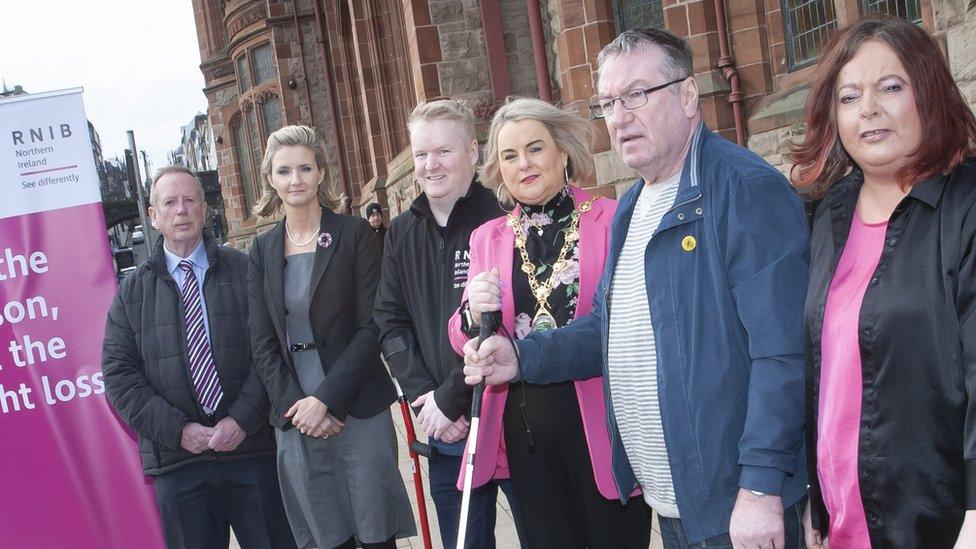Visual impairment: Derry aims to improve accessibility
- Published

Campaigner Rory McCartney, third from left, says Derry can be a daunting city for anyone with a visual impairment.
Street clutter and public transport in Londonderry are among the areas to be looked at in an attempt to make the city more friendly for visually impaired people.
Derry City and Strabane District Council has passed a motion to make the area a more "visually aware space".
Roy McCartney, who is visually impaired, is campaigning to improve accessibility in the city and district.
He said Derry could be daunting for blind or partially sighted people.
Speaking to BBC Radio Foyle on Monday, Mr McCartney, who volunteers with the Royal National Institute of Blind People (RNIB), said a blind or partially sighted person could encounter a range of challenges.
"Day-to-day issues could be just something as simple as navigating the town," Mr McCartney said.
"There are a lot of billboards and street furniture out and about and for people with white canes they can be a very big hazard and can cause accidents.
"Even going into restaurants for some people can be challenging - things like being able to read a menu or, for me personally, something like using a bus can be difficult because the print can be so small."
'Safe and accessible welcome'
Mr McCartney said making Derry a visually aware city meant ensuring anyone with a visual impairment could expect a safe and accessible welcome from the city's service and hospitality sector.
"It means that for anybody who is blind or visually impaired can go into any hotel, café, restaurant or any attractions in the city and there will be someone there who is visually aware trained," he said.
Mayor Sandra Duffy met RNIB volunteers last week on how they could implement the necessary changes.
RNIB's Northern Ireland policy and campaigns manager Paula Beattie said the charity would now work with the council to inform public policy planning.
They will look at areas including public transport, clutter on streets and work to ensure inclusivity of employment, education, and health care services, she explained.
The council's renewed commitment will also help raise awareness over the challenges faced by blind and partially sighted people, she added.